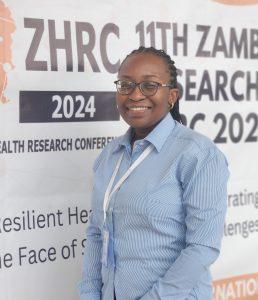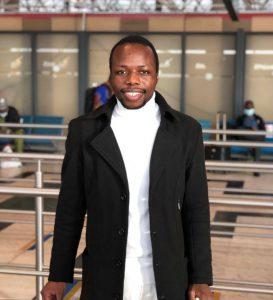 November 2024
November 2024
Courage Chandipwisa is invested in advancing vaccine efficacy, particularly for infectious diseases that impact both animals and humans. Courage holds a MSc in Vaccine Production and Quality Control, he is a Doctor of Veterinary Medicine, and a researcher in infectious disease. He is passionate about discovering how immune responses can be optimized for long-term protection, particularly in addressing zoonotic diseases and high-burden infections like tuberculosis and HIV. His research is fueled by a desire to contribute to global health solutions that protect populations at risk and improve vaccine outcomes across various environments.
We would love to hear more about your ongoing research. What projects are you currently working on and how do they impact the field?
Currently, I am conducting a study titled ‘A Comparative Evaluation of the Immunogenicity, Safety, and Potency of Cell Culture-Adapted Fowl Pox Vaccines.’ This project explores immune responses and the potential for enhanced vaccine performance, particularly for animal health, with insights that could be valuable for human vaccines as well. Additionally, I’m involved in developing and testing adjuvant-enhanced vaccines targeting resistant respiratory pathogens, such as Streptococcus pneumoniae. These projects aim to tackle vaccine effectiveness against resistant pathogens, addressing a crucial need in global infectious disease management.
There are many areas of science and immunology is quite broad and complex. What inspired you to choose this branch of science over others?
Immunology has always intrigued me because of its direct impact on both human and animal health. During my veterinary training, I saw firsthand how zoonotic diseases could disrupt communities and realized that immunology held the potential to change that. Immunology bridges human and animal health, providing tools that can be used across species. This versatility and the power of immune responses to shape health outcomes across ecosystems were what drove me to pursue this field. It’s a branch of science that allows us to connect public health, research, and real-world solutions.
What specifically stood out about Immunopaedia that made you want to be an ambassador?
Immunopaedia stood out to me for its dedication to making complex immunology concepts accessible to researchers globally. My interest in becoming an ambassador was sparked after attending the One Health course on Comparative Immunology and Zoonoses in Pretoria, South Africa, in 2024. This course not only emphasized the importance of a global approach to immunology but also highlighted the value of cross-disciplinary collaboration for tackling zoonotic diseases that impact both human and animal health. The course included highly engaging sessions and collaborative discussions with experts in the field, which broadened my perspective and underscored how crucial it is to connect diverse insights in immunology. I was also intrigued by the practical applications shared, from antimicrobial resistance to immune responses, which highlighted the real-world relevance of Immunopaedia’s mission. Becoming an ambassador allows me to support this network, fostering connections and sharing knowledge that bridge research and global health solutions.
Based on your own experience, what one piece of advice would you give someone who wants to study/research immunology?
I would say, let your curiosity guide you. Immunology is broad and challenging, but each answer you find builds toward a deeper understanding. Start with the foundations, but don’t hesitate to explore connections to other fields. Immunology doesn’t work in isolation; the immune system interacts with every other part of biology, so drawing from various disciplines can enrich your perspective. Also, be resilient—research isn’t always smooth, but those setbacks often lead to the greatest discoveries.
What has been a moment of unexpected joy or surprise in your scientific career that has stayed with you?
One of the most rewarding moments was seeing the positive immune response results from a fowl pox vaccine I had worked on and tested. After many rounds of adjustments, seeing promising efficacy data was incredibly fulfilling. It was not only validation for the project but a reminder of the real-world impact that our research can have. Each step brought a new sense of discovery, and the success felt like a celebration of everyone’s hard work. That experience reinforced my commitment to developing vaccines and advancing health solutions through science.
October 2024
Mizinga Jacqueline Tembo is a research laboratory scientist with a BSc in Biomedical Sciences who has just completed her MSc in Infectious Diseases at the London School of Hygiene and Tropical Medicine. Her interests in research immunology include studying immune modulation with a focus on viruses and T cell responses.
We would love to hear more about your ongoing research. What projects are you currently working on and how do they impact the field?
Among other projects, I am currently employed under the VITALITY research project, a clinical trial that is investigating the impact of high-dose vitamin D supplementation on bone development in HIV-infected adolescents in Lusaka, Zambia. We have been evaluating T cell immune responses in adolescents living with HIV, comparing immune activation between the group receiving vitamin D supplementation and the placebo group. This study will lead to insights on the immunomodulatory role of vitamin D supplementation in adolescents living with HIV.
What inspired you to choose immunology over other branches of science?
I was drawn to immunology because of its dynamic and impactful role in understanding and improving human health, especially through the lens of infectious diseases and immune responses. Taking an immunology course during my BSc degree opened my eyes to the complexity and relevance of immune science, from its vast terminology to the intricate cellular interactions. Furthermore, my work experience made me realize that immunology uniquely aligns with my passion for research and my desire to make a tangible difference in people’s lives, particularly in areas like HIV research where immune health is critical.
What specifically stood out about Immunopaedia that made you want to be an ambassador?
I was impressed by how the Immunopaedia organizers encourage learning at every step and inspired by the diverse national representation among the ambassadors.
Based on your own experience, what one piece of advice would you give someone who wants to enter the field of immunology?
Immunology research requires a lot of time and patience, especially where cellular based assays are concerned. It’s okay to not get it right on the first try, but always learn from the mistakes.
Do not be intimidated by the extensive terminology; the more you read and conduct research, the faster you’ll learn what you need to know.
Immunology encompasses a lot of other disciplines hence the learning never stops. Always strive to learn more and acquire new skills.
What has been a moment of unexpected joy or surprise in your scientific career that has stayed with you?
Recently, I attended my first immunology workshop, and I was pleasantly surprised by how engaging it was. The scientific presentations and discussions were captivating, leading me to conclude that immunology is the best field for advancing my scientific career.
May we please have your most recent publications?
Besa EC, Tembo MJ, Mulenga C, Mweetwa M, Choudhry N, Chandwe K, Storer C, Head R, Haritunians T, McGovern D, Amadi B, Kwenda G, Peiris M, Kelly P. Potential determinants of low circulating glucagon-like peptide 2 concentrations in Zambian children with non-responsive stunting. Experiment physiology. 2023;2. doi: 10.1113/EP090492.
Schillinger RJ, Mwakamui S, Mulenga C, Tembo M, Hodges P, Besa E, Chandwe K, Owino VO, Edwards CA, Kelly P, Morrison DJ. 13C-sucrose breath test for the non-invasive assessment of environmental enteropathy in Zambian adults. Frontiers in Medicine. 2022;9. doi.org/10.3389/fmed.2022.904339
Dzavakwa, N.V., Chisenga, M., McHugh, G., Filteau, S., Gregson, C.L., Kasonka, L., Kranzer, K., Mabuda, H.B., Mujuru, H., Redzo, N., Rowland-Jones, S., Schaible, U.E., Simms, V., Ferrand, R.A., the VITALITY team*, 2022. Vitamin D3 and calcium carbonate supplementation for adolescents with HIV to reduce musculoskeletal morbidity and immunopathology (VITALITY trial): study protocol for a randomised placebo-controlled trial. Trials 23, 78. doi.org/10.1186/s13063-021-05985-0.
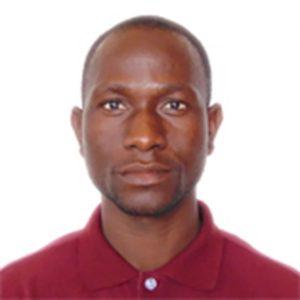 September 2024
September 2024
Tégmaba GNODJA is from Togo and he is pursuing his PhD in immunology at Cheikh Anta Diop University of Dakar in Senegal. He completed his master’s degree in immunology and infectious diseases at the same university. He is passionate about immunology and virology and particularly antiviral immune defense mechanisms.
We would love to hear more about your ongoing research. What projects are you currently working on and how do they impact the field?
My current research focus on immune investigations of viral hepatitis B and C, especially the involvement of T cells subpopulations. The aim is to identify immunological biomarkers for prognostic and diagnostic purposes and to guide the treatment or clinical management of hepatitis B and C in hospitals.
There are many areas of science and immunology is quite broad and complex. What inspired you to choose this branch of science over others?
After my bachelor’s degree in medical biology, I had a burning desire to better understand the structure and functioning of cells and their implications in the occurrence of diseases. To do this, it was necessary to choose hematology or immunology. I choose immunology for three reasons:
- Firstly, immunology is poorly studied in Africa.
- Secondly, immunology remains at the embryonic stage particularly in my country and even in sub-Saharan Africa.
- Thirdly, it’s a multidisciplinary science at the centre of many areas. For example, immunohematology, immunogenetic, immunoparasitology, immunovirology.
What specifically stood out about Immunopaedia that made you want to be an Immunopaedia ambassador?
Immunology is a complex and constantly evolving area. Being part of an organization working in training and updating knowledge in immunology remains essential. The educational approach of Immunopaedia appealed to me.
Based on your own experience, what one piece of advice would you give someone who wants to study/research immunology?
I will tell him to arm himself with perseverance because research in immunology in our developing countries remains thorny.
What has been a moment of unexpected joy or surprise in your scientific career that has stayed with you?
Preparing my master’s thesis in immunology remains a moment of surprise in my scientific career.
May we please have your most recent publications?
Reduced IL-17A producing lymphocytes in chronic hepatitis C individuals treated with Sofosbuvir / Velpatasvir at CHU Campus of Lomé, Togo. African Journal of Immunology Research ISSN 2756-3375 Vol. 11 (2), pp. 001-009, February 2023.
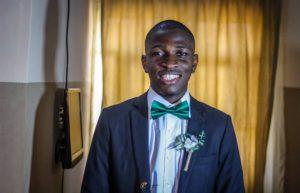 August 2024
August 2024
Emmanuel Adamolekun is a Medical Laboratory Scientist based in Nigeria, he currently works as a research assistant at Helix Biogen Research institute under the supervision of Dr Elijah Oladipo (Clinical Immunology and Microbiology specialist).
Emmanuel earned his Medical Laboratory Science degree in 2018 from Ladoke Akintola University of Technology, Ogbomosho, Nigeria. He has worked as a Medical Laboratory Scientist at the Department of Medical Laboratory Services, University of Medical Science Teaching Hospital, Akure
Emmanuel has developed research interests in vaccinology specifically the in field of Immunoinformatics, where bioinformatic approaches are used in designing vaccines.
We would love to hear more about your ongoing research. What projects are you currently working on and how do they impact the field?
Helix Biogen institute where I work is an institute established to act as a driving force for innovation in the field of Biomedical Sciences. We are committed to the advancement of Life Science with the use of technology. In achieving this, we are deploying creative innovations that can be adopted by the healthcare system and biomedical industry in form of diagnostic kits, therapeutic peptides, monoclonal antibodies, and vaccine for infectious diseases.
So, I am currently exploring Leishmania Thoi-specific antioxidant protein to design to design B and T cell multi-epitope subunit vaccine using immunoinformatics approach. Check us out: https://www.helixbiogeninstitute.org
There are many areas of science and immunology is quite broad and complex. What inspired you to choose this branch of science over others?
My inspiration to pursue immunology stems from its pivotal role in public health, particularly in vaccine development. Witnessing the devastating impact of infectious diseases in Africa, where vaccine access is limited, highlighted the urgency of advancing immunological research. Immunology’s potential to develop life-saving interventions, especially in underserved regions, drives my passion. The need for local vaccine manufacturing in Africa further motivated me to focus on immunology, as it offers a way to improve health security on the continent. By contributing to this field, I aim to play a part in reducing global health disparities.
What specifically stood out about Immunopaedia that made you want to be an ambassador?
What stood out about Immunopaedia is its free and open-access platform, making immunological knowledge accessible to everyone. Its use of clinical case studies to educate on immunology aligns with my passion for applied learning. Additionally, Immunopaedia offers excellent networking opportunities with experts in the field, which is crucial for advancing my career goals in Genomics of Infectious Diseases and vaccine development for neglected tropical diseases.
Based on your own experience, what one piece of advice would you give someone who wants to study/research immunology?
Immunology is a platform for translational research where one can develop health interventions that can impact the world in ways you that you cannot imagine. Just like what vaccines doing today to save lives. Give it your best shot!
If not immunology, then what? Which other field(s) would have benefited from your contribution and why?
If not Immunology, I would go for law, as we are still born into a society where people are denied their human rights daily. It is sad. I would defend the rights of others so that everyone around me is treated equally.
What has been a moment of unexpected joy or surprise in your scientific career that has stayed with you?
The most unexpected joy for me was in 2019, when the abstract from my undergraduate thesis “The impact of Antiretroviral therapy on the blood coagulation on HIV-known patients attending a HIV clinic in one of South-western cities in Nigeria” was accepted by two international conferences, ICASA 2019 and 2019 Nigeria Centre for Disease Control/National Field Epidemiology Training Programme (NFETP) Conference. Seeing my abstract being accepted was extremely exciting as a young graduate with little research experience. I did have to choose one of the conferences to present my paper at, I chose the NCDC/NFETP Conference, where I presented my research findings to experts and public health professionals. I was both nervous and excited! I left the conference with a new worldview – that success knows no age, education status or sex if you give in your best. That has been my compass in my career development.
To have a better understanding of where your input lies in immunology, may we please have your most recent publications?
To read more about what we do at Helix Biogen Institute: https://www.helixbiogeninstitute.org/publications
 July 2024
July 2024
Faith T. Oluwamakinde is a postgraduate student specializing in Medical Immunology. Her journey in immunology began with a Bachelor of Science in Biomedical Science and has progressed through advanced studies culminating in a Master of Science in Medical Immunology. Faith’s fascination with immunology stems from its intricate complexity and profound impact on human health. She is particularly enthusiastic about Primary Immunodeficiencies (PIDs), also known as In-born Errors of Immunity and virology related topics, which have been the focal point of my research endeavours.
We would love to hear more about your ongoing research. What projects are you currently working on and how do they impact the field?
Currently, my MSc research focuses on implementing point-of-care (POC) HIV treatment and resistance monitoring to improve viral suppression in antiretroviral therapy (ART)-experienced patients failing therapy. This work aims to enhance the effectiveness of HIV treatment by providing real-time monitoring and rapid adjustments to therapy, leading to better clinical outcomes for patients. The project also aims to evaluate a cost-effective, rapid POC strategy for qualitative ART adherence and resistance testing in unsuppressed patients with HIV.
This involves the use of urine-tenofovir (TFV) and dried-blood spot (DBS) dolutegravir (DTG) assays to determine ART adherence and potential drug resistance, facilitating appropriate interventions such as intensified adherence counselling or resistance testing to enhance clinical management and improve health outcomes.
This research is pivotal as it aims to improve the management of HIV, particularly in resource-limited settings, ensuring better health outcomes for patients.
The implications of this research are significant, as it addresses a critical need for more efficient and accessible HIV care, particularly in resource-limited settings.
There are many areas of science and immunology is quite broad and complex. What inspired you to choose this particular branch of science over others?
My inspiration to delve into immunology came from a desire to understand the underlying mechanisms of the immune system’s response to pathogens and how these mechanisms can be harnessed to improve human health. The field’s potential to uncover novel therapeutic strategies and its direct impact on disease prevention and treatment were compelling reasons for me to choose this path. Additionally, witnessing the advancements in immunotherapy and its transformative effects on patient care reinforced my commitment to this field.
Could you tell us about your role as a “Life Science Field Applications Specialist”?
In my role as a Life Science Field Applications Specialist, I bridge the gap between advanced immunological research and practical applications in clinical settings. My responsibilities include providing technical support and training to laboratory personnel, ensuring the implementation of innovative diagnostic techniques, and optimizing laboratory workflows to enhance diagnostic accuracy and efficiency. This role allows me to stay at the forefront of technological advancements while directly contributing to improved patient care. I engage in conducting product demonstrations and workshops, developing relationships with key customers, and identifying and addressing customer needs to improve satisfaction and drive sales within South Africa and surrounding SADC countries.
What specifically stood out about Immunopaedia that made you want to join our team?
Immunopaedia’ s commitment to advancing immunology education and its global outreach initiatives resonated deeply with my own passion for education and research. The platform’s dedication to providing accessible, high-quality educational resources and fostering a collaborative international community of immunologists was particularly inspiring. Joining Immunopaedia represents an opportunity to contribute to a cause that aligns perfectly with my professional goals and values.
Based on your own experience, what one piece of advice would you give someone who wants to study/research immunology?
Stay curious and be relentless in your pursuit of knowledge. Immunology is a constantly evolving field, and staying updated with the latest research and developments is crucial. Find a supportive mentor who can guide you through the complexities of the field, and never underestimate the value of collaboration. Embrace challenges as opportunities to learn and grow and remain enthusiastic about making a difference through your research.
If not immunology, then what? Which other field(s) would have benefited from your contribution and why?
I would have pursued a career in medicine, specifically neurosurgery. The intricate and demanding nature of neurosurgery, along with its potential to significantly impact patients’ lives, aligns with my dedication to solving complex medical challenges. My background in biomedical science and immunology would have provided a strong foundation for understanding the physiological and pathological aspects of the nervous system, thereby contributing to advancements in surgical techniques and patient care in neurosurgery.
What has been a moment of unexpected joy or surprise in your scientific career that has stayed with you?
One memorable moment in my career was the first time I successfully implemented a novel diagnostic technique in a clinical setting, which significantly improved the accuracy of syphilis testing. Witnessing the immediate positive impact on patient diagnosis and care was incredibly rewarding. This experience underscored the importance of translational research and the tangible benefits it can bring to healthcare.
To have a better understanding of where your input lies in immunology, may we please have your most recent publications?
Certainly. My most recent work is focused on implementing point-of-care (POC) HIV treatment and resistance monitoring to improve viral suppression in ART-experienced patients failing therapy. This research highlights the significance of real-time monitoring and rapid adjustments to therapy in enhancing the effectiveness of HIV treatment.
June 2024
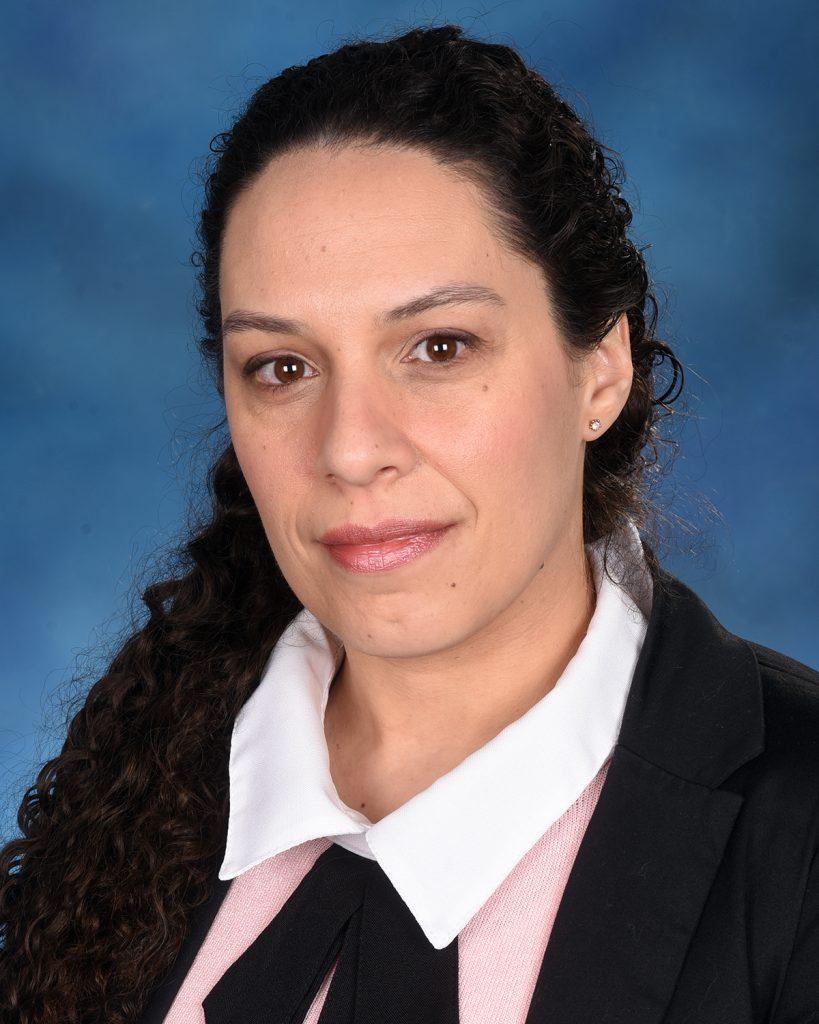 Alejandra Urioste is a biochemist and a pharmacist who graduated from the University of Buenos Aires (Universidad de Buenos Aires, Facultad de Farmacia y Bioquimica), Argentina. During her residency in Clinical Immunology and her PhD project, she worked mostly on the immune response against HIV and HCV. Alejandra is currently at the Histocompatibility Laboratory at the “Carlos G. Durand” General Hospital where she works on alloimmune response and kidney transplantation. The Histocompatibility Laboratory is the only public laboratory in the City of Buenos Aires involved in the National Transplantation Program.
Alejandra Urioste is a biochemist and a pharmacist who graduated from the University of Buenos Aires (Universidad de Buenos Aires, Facultad de Farmacia y Bioquimica), Argentina. During her residency in Clinical Immunology and her PhD project, she worked mostly on the immune response against HIV and HCV. Alejandra is currently at the Histocompatibility Laboratory at the “Carlos G. Durand” General Hospital where she works on alloimmune response and kidney transplantation. The Histocompatibility Laboratory is the only public laboratory in the City of Buenos Aires involved in the National Transplantation Program.
We would love to hear more about your ongoing research. What projects are you currently working on and how do they impact the field?
I worked on the immune mechanism of tissue-resident kidney macrophages. Recently, my interests have been in biomarkers on kidney transplantation and HLA (Human Leukocyte Antigens)-related diseases.
There are many areas of science and immunology is quite broad and complex. What inspired you to choose this branch of science over others?
I have always been interested in the transplantation field for personal reasons AND it is a field not fully developed, with many questions still to be answered, both in the clinical and research areas.
What specifically stood out about Immunopaedia that made you want to be an ambassador?
I would love to spread Transplantation Immunology knowledge and Immunopaedia is the perfect place to do this. Students need to find information on immunology, as it is unlikely that they will be interested in a field that they don’t know about. That is why I believe in creating a communication channel for immunology – and Immunopaedia is doing that!
Based on your own experience, what one piece of advice would you give someone who wants to study/research immunology?
It is easy to feel confused with all the information when you study immunology… lots of molecules… and immune cells with specific functions…it is easy to become confused. Don’t become anxious, rather take your time and try to understand. Don’t try to learn everything all at once. Immunology is a long but fantastic trip, with many areas that you can work in. Just be patient and you will find your passion in the field.
If not immunology, then what? Which other field(s) would have benefited from your contribution and why?
Immunology is related to other fields that I love: Genetics and Molecular Biology. Understanding the genetic mechanisms in immunology is critical for the diagnosis and treatment of diseases, and molecular biology is one of the key techniques. For example, in transplantation, the histocompatibility study includes the genotypic characterization of the HLA antigens between donors and recipients.
What has been a moment of unexpected joy or surprise in your scientific career that has stayed with you?
After years of hard work, I felt incredibly happy when I received recognition for my research work in my residency and PhD from different scientific societies in Argentina. It all happened all at once, and after that, I had the chance to work abroad and start my journey in the transplantation field. I feel so lucky for that opportunity, and I hope I can move forward with my scientific career, while not leaving behind my passion for clinical work and teaching.
To have a better understanding of where your input lies in immunology, may we please have your most recent publications?
Urioste A, Capecce E, Holoveski L, Cantisano C, Balbaryski J, Gaddi E. “Prevalence and characteristics of hypergammaglobulinemias in a pediatric population”. Revista Pediátrica Elizalde; 7 (1): 17– 21. 2016. (in Spanish).
Barboni G, Balbaryski J, Urioste A, Candi M, Laucella S, Gaddi E. “Restoration of recent thymic emigrant CD4+ T cells is associated with sustained adherence to antiretroviral treatment in HIV-infected children”. Scand J Immunol.;00:e12838. 2019.
Polo ML, Ghiglione Y, Salido J, Urioste A, Poblete G, Sisto A, Martinez A, Rolón MJ, Ojeda D, Cahn P, Turk G, Laufer N. “Liver cirrhosis in HIV/HCV‐coinfected individuals is related to NK cell dysfunction and exhaustion, but not to an impaired NK cell modulation by CD4+ T‐cells”. J Int AIDS Soc.; 22(9): e25375. 2019.
May 2024
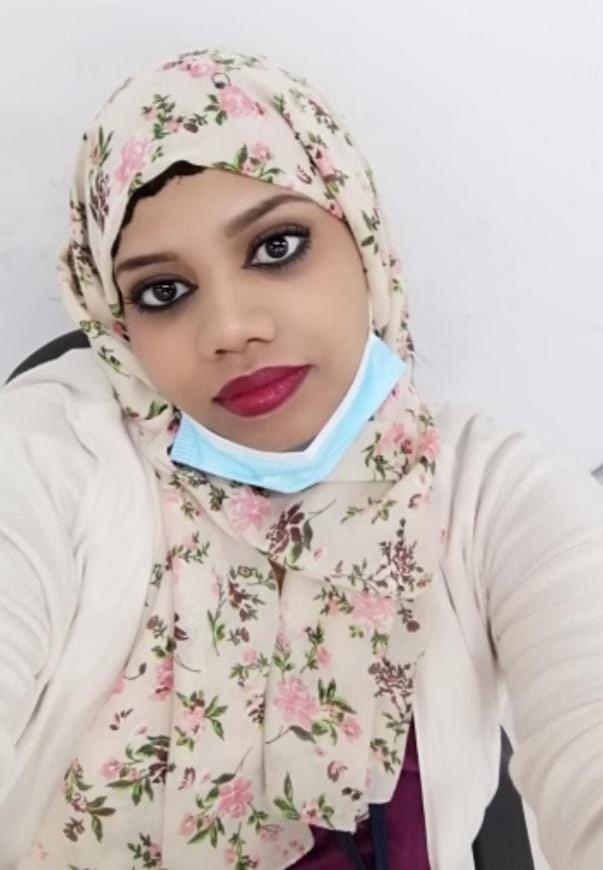 Naffesa Abdul Munim Al Sheikh wears multiple hats in the medical and scientific community – she is a medical lab scientist, a researcher, a histotechnologist, a lecturer, and proud to be an Immunopaedia ambassador. Nafessa is originally from Sudan, but now calls Oman home. Her scientific journey has been one of exploration and dedication to understanding the complexities of human health, particularly in the realm of immunology. Whether it is conducting research, teaching future scientists, or advocating for immunology education, Nafessa is passionate about making a difference in the world of healthcare.
Naffesa Abdul Munim Al Sheikh wears multiple hats in the medical and scientific community – she is a medical lab scientist, a researcher, a histotechnologist, a lecturer, and proud to be an Immunopaedia ambassador. Nafessa is originally from Sudan, but now calls Oman home. Her scientific journey has been one of exploration and dedication to understanding the complexities of human health, particularly in the realm of immunology. Whether it is conducting research, teaching future scientists, or advocating for immunology education, Nafessa is passionate about making a difference in the world of healthcare.
We would love to hear more about your ongoing research. What projects are you working on and how do they impact the field?
My research focuses on systemic lupus erythematosus (SLE) with a focus on lupus nephritis, post-kala-azar dermal leishmaniasis (PKDL), and COVID-19. I’m also interested in studying regulatory T cells (Tregs) and their role in these diseases.
What specifically stood out about Immunopaedia that made you want to be an ambassador?
Several aspects of Immunopaedia stood out to me and fuelled my desire to become an ambassador. First, Immunopaedia’s commitment to advancing global immunology education through accessible, high-quality resources aligns perfectly with my passion for education and public outreach. The comprehensive content provided by Immunopaedia offers a wide audience—from students to seasoned professionals— immunology knowledge.
Additionally, Immunopaedia’s focus on fostering a global community of immunologists is particularly inspiring. I am deeply motivated by the opportunity to collaborate with and learn from colleagues worldwide, which not only broadens my perspectives but also enhances the collective knowledge and innovation within the field.
Immunopaedia published critical information during the COVID-19 pandemic which highlighted its impact and relevance in real-time public health crises. I found this inspiring as a researcher.
Being an Immunopaedia Ambassador allows me to contribute to a mission I am passionate about—promoting immunology education.
There are many areas of science and immunology is quite broad and complex. What inspired you to choose this branch of science over others?
I chose immunology as it intersects with multiple areas of biomedical science and immune responses are key to the development of many common diseases and malignancy treatments. I feel most scientists would be able to find an area of immunology that would suit their curiosity or interests.
Based on your own experience, what one piece of advice would you give someone who wants to study/research immunology?
Dive deep into the literature and stay curious. Immunology is a rapidly evolving field, so staying up-to-date and asking questions is the key to success.
If not immunology, then what? Which other field(s) would have benefited from your contribution and why?
Human rights! My background in immunology can contribute significantly to human rights work, especially in areas like health equity and access to healthcare. Understanding the intersection of health and human rights is crucial, and my expertise can provide valuable insights into developing policies and initiatives to improve healthcare access for marginalized communities.
What has been a moment of unexpected joy or surprise in your scientific career that has stayed with you?
Although my main major was in histopathology and cytology, I’ve found myself increasingly drawn to the interdisciplinary nature of immunology. Exploring immunology has opened new avenues and has allowed me to approach health and disease from a broader perspective. This shift has been both unexpected and rewarding, I now have new passions and opportunities for growth.
To have a better understanding of where your input lies in immunology, may we have your most recent publications?
Al. Kharusi, M.; Al Sheikh, N.; Alhajri, M.; Al. Mandhri, S.A.; Khafagy, E.-S.; Moglad, E.H.; Alotaibi, H.F.; Hegazy, W.A.H. A Prospective Cohort Study of COVID-19: Evaluation of the Early Role of IL-1 and IL-6 Antagonists in Improving the Outcome of the Illness and Reduction in the Risk of Death. Healthcare 2023, 11, 1025. https://doi.org/10.3390/healthcare11071025
April 2024
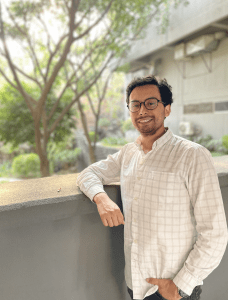 Eugenio Contreras Castillo is a biologist and a PhD student at the National Autonomous University of Mexico. He works at the Paula Licona-Limón Lab in the Institute of Cellular Physiology. Eugenio has a deep passion for Immunology and everything related to it. In recent years he has focused on understanding how T cells work.
Eugenio Contreras Castillo is a biologist and a PhD student at the National Autonomous University of Mexico. He works at the Paula Licona-Limón Lab in the Institute of Cellular Physiology. Eugenio has a deep passion for Immunology and everything related to it. In recent years he has focused on understanding how T cells work.
Tell us a bit about the current research that you are part of.
Currently, my research focuses on unravelling the molecular mechanisms by which the TGF signalling pathway controls the function and suppressive abilities of regulatory T cells (Tregs). Specifically, our primary efforts are aimed at understanding how TIF1g, a protein involved in this signalling pathway, bestows Treg identity and prevents their conversion to proinflammatory Th subsets.
What made you choose the field of Immunology over others?
As an undergrad, I was very interested in understanding cancer biology, and the strategies to control this disease. When reading about this topic I discovered that it is difficult to understand the immune system. It was a new world. At first, I took this as a challenge but later I found it so fascinating that I got sucked in, and here I am years later very happy with my choice.
What drove you to Immunopedia?
I heard about Immunopaedia last year when I applied to the IUIS-ALACI-SMI-ASOCHIN Immuno-Chile 2023 Congress.
What advice do you have for fellow researchers who are interested in Immunology?
Always be curious, don’t be afraid to ask questions! In research, it is always important to look at a problem from different perspectives.
If you were not involved in Immunology, what other scientific fields do you see yourself contributing to?
Sociology or conservation biology.
If you could learn and perform the assay/laboratory technique of your dreams, which one would it be and why?
I guess it would be some spatial transcriptomics as it has huge potential to help understand the immune interactions in the tissue in a more detailed manner.
If anyone was visiting Mexico for the first time, what do you feel are the top 5 things they must not leave without experiencing?
I recommend visiting the National Art Museum, exploring my alma mater, UNAM, touring colonial cities such as Queretaro, Puebla, or Oaxaca, sampling local cuisine, and savouring “tacos al pastor.”
Recent publication:
Eugenio Contreras-Castillo, Verónica Yutsil García-Rasilla, María Guadalupe García-Patiño, Paula Licona-Limón, Stability and plasticity of regulatory T cells in health and disease, Journal of Leukocyte Biology, 2024;, qiae049, https://doi.org/10.1093/jleuko/qiae049
Immuno-Chile 2023 Interviews
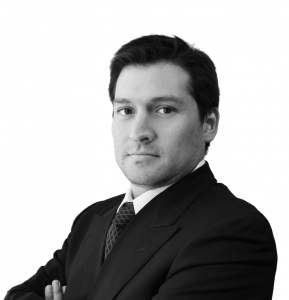 March 2024
March 2024
Oscar Medina-Contreras is an immunologist who works on the regulation of intestinal immune responses. He has a B.S. in Biology, a Ph.D. in Molecular Biomedicine, and completed a postdoctoral fellowship in the School of Medicine and the Emory Children’s Center at Emory University. He was also a Research Associate in the Center for Inflammation, Immunity & Infection at the Institute for Biomedical Sciences at Georgia State University. Since 2015, Dr. Medina has been a Medical Sciences Researcher in the Immunology & Proteomics and the Epidemiology, Endocrinology & Nutrition Research Units at the Mexico Children’s Hospital.
Tell us a bit about the current research work that you are part of?
My main area of research is to thoroughly characterize the intestinal lamina propria macrophage populations and their unique anti-inflammatory signature, as they may promote differentiation of T regulatory cells and tolerance in the mucosa. I also study the family of inflammatory cytokines IL-36, in various models of intestinal inflammation, ulcerative colitis or Crohn’s disease, obesity, and cancer. I am particularly interested in studying the intercommunication that exists between the cells of the immune system and the intestinal epithelium, and the modulation that these cell populations have with the commensal microbiota.
What made you choose the field of Immunology over others?
Throughout my academic career, I have maintained a profound interest in the intricate mechanisms governing organismal function. The complexity of immune regulation has particularly captivated my attention. I am convinced that the field of immunology offers an unparalleled lens through which to attain a comprehensive understanding of biological systems from a systems biology perspective.
What drew you to Immunopaedia?
Immunopaedia’s aim to share immunological knowledge for both students and clinicians, in several developing countries.
What advice do you have for fellow researchers that are interested in Immunology?
Be prepared, sometimes you will get wonderful results. While moments of success are gratifying, it is essential to acknowledge that frustration will be a frequent companion. Therefore, cultivating a high threshold for frustration is crucial for sustained progress and resilience.
If you were not involved in Immunology, what other scientific fields do you see yourself contributing to?
Astrophysics.
If you could learn and perform the assay/laboratory technique of your dreams, which one would that be and why?
I’ve done most of the techniques I wanted to do. However, the rapid development of novel methodologies necessitates frequent updates to the experimental repertoire. The capacity to monitor phenotypic and metabolic alterations in vivo and in real time would be great as it would significantly enhance research capabilities.
If anyone was visiting Mexico for the first time, what do you feel are top things they must experience?
Mexican food is a must. Museums, colonial architecture, pyramids, and the Trans-Mexican Volcanic Belt.
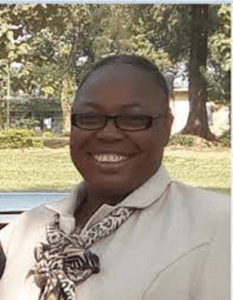 February 2024
February 2024
Dr. Margaret Oluwatoyin Japhet is an Associate Professor of Virology at the Department of Microbiology, Obafemi Awolowo University, Nigeria. She completed her undergraduate and master’s studies in Microbiology and Virology respectively, from the University of Ibadan, Nigeria. Dr Japhet completed her doctorate study in Microbiology at Ekiti State University, Nigeria, and Robert Koch Institute, Berlin, Germany, where the molecular aspect of the work was carried out. She is a fellow of the EDCTP (European and Developing Countries Clinical Trial Partnership) and New York Academy of Science, being awarded different grants for viral studies by both organizations. In addition, she is a faculty member as a visiting Professor in the Faculty of Pharmacy, Howard University, USA. Dr Japhet’s research focus is on immunology of viral infections, diagnosis, and control.
Tell us a bit about the current research work that you are part of?
I am currently involved in the development of nanoparticle-based immunoassay kit for detection of rotavirus diarrhoea using cotton swab, rotavirus antigen, monoclonal antibody and nanobeads. Group A rotavirus (RVA) is the most common cause of severe diarrhoea in infants and young children worldwide, accounting for about 60% of all diarrheal episodes in developing countries, yet its routine diagnosis is scarce in developing counties due to cost, equipment and need for trained personnel. Our study is on development of a rapid, sensitive, simple, and equipment-free rotavirus kit, suitable for use in low-income areas with limited access to laboratory facilities and trained personnel.
What made you choose the field of Immunology over others?
My immunology study is attached to virology. Immunology is core to viral studies and virology cannot be complete without immunology. There is the need to know how viruses affect the body and how the immune system reacts to fight these infections. This is the basis of vaccinology/control of viral infections.
What drew you to Immunopaedia?
I became aware of Immunopaedia during the Immuno-Gambia course which held at Banjul, the Gambia in 2016. I enjoyed the training, and I was invited to become an Immunopaedia Ambassador amongst all the Nigeria participants. I have since been involved in writing “Breaking News,” creating videos on immunology, and recently, I assisted in the preparation of pre-course material.
What advice do you have for fellow researchers that are interested in Immunology?
Interest, passion, and determination! They should not give up on an initial challenge in comprehension. They can get basic knowledge from the Immunopaedia website for a start.
If you were not involved in Immunology, what other scientific fields do you see yourself contributing to?
I can’t think of any!
If you could learn and perform the assay/laboratory technique of your dreams, which one would that be and why?
Whole genome sequencing and next generation sequencing, because this could help to detect both known and novel viral transcripts.
If anyone was visiting Ile-Ife, Osun State, Nigeria for the first time, what do you feel are top 5 things they must not leave without experiencing?
- Visiting the Obafemi Awolowo University Campus, Africa most beautiful Institution with architectural master pieces
- Visiting the Oni of Ife Palace, the ancient Yoruba heritage
- Ife Grant Resort Centre
- Ojaja Mall
- Country Kitchen Eatery for sumptuous meals and drinks
Recent Publications:
Adesina, O.A., Akanbi, O.A., Opaleye, O.O., Japhet M.O., Wang, B., Oluyege, A.O., Klink P., Bock, C.T. (2021). Detection of Q129H Immune Escape Mutation in Apparently Healthy Hepatitis B Virus Carriers in Southwestern Nigeria. Viruses. 29;13(7):1273 pgs 1-14. –
Omotade, T.I., Babalola, T.E., Anyabolu, C.H., Japhet, M.O. (2023). Rotavirus and Bacterial Diarrhoea Among Children in Ile-Ife, Nigeria: Burden, Risk Factors and Seasonality. PLOS ONE.18(9):1-16.
Japhet, M.O., Adama, T.U., Oyewale, A.P., Omotade, T. I., Awe, A., Elujoba S. O. (2023). High Prevalence of Hepatitis E IgM Antibody among pregnant women in their Second and Third Trimester in Southwest Nigeria. Pan African Journal of Life sciences (PAJOLS). 7(3): 699-705
January 2024
In January we showcased some interviews from the participants of the Immuno-India course in late 2023.






